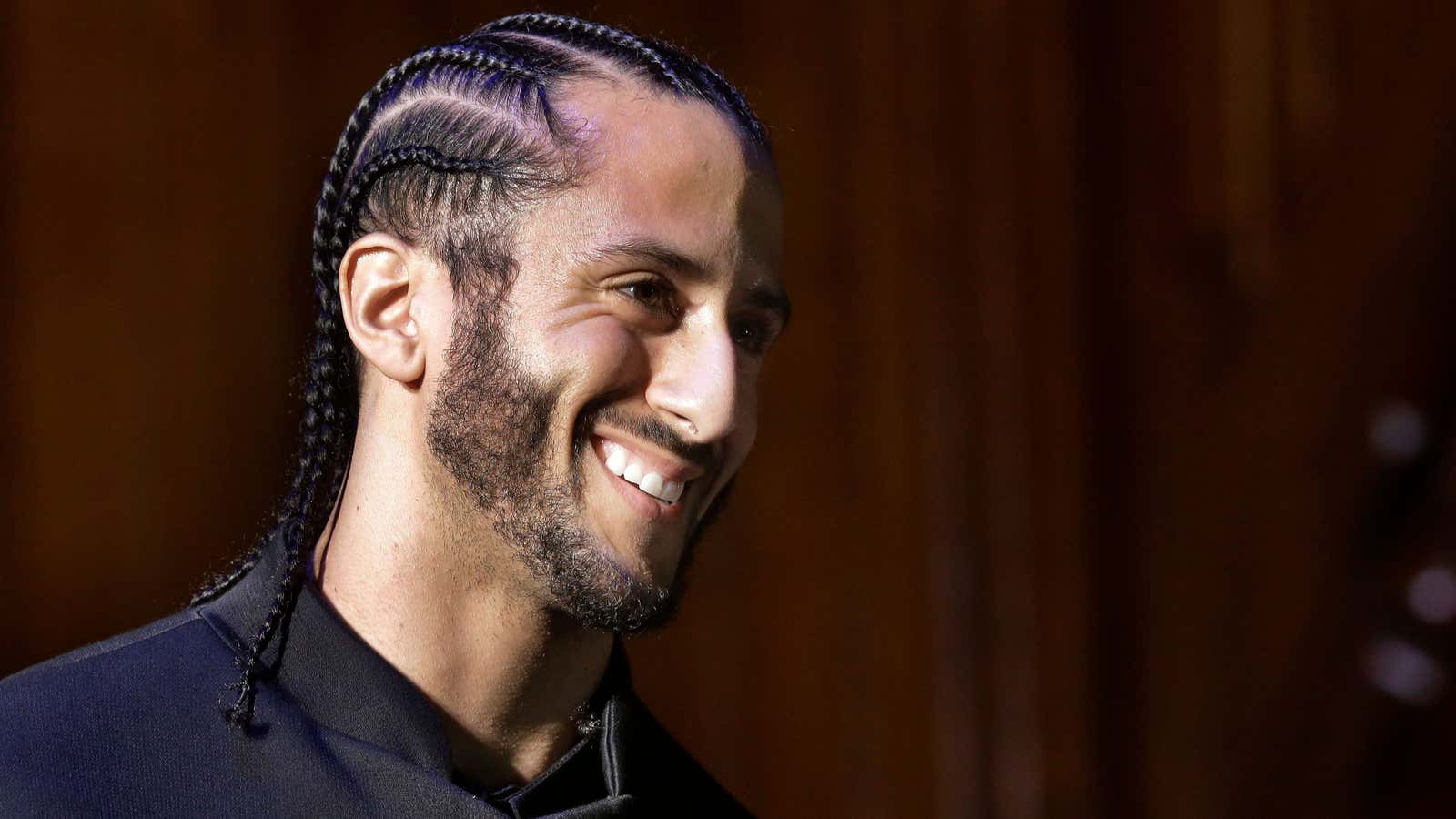Colin Kaepernick, the NFL quarterback at the center of a storm of controversy stemming from his protests against police brutality, settled his lawsuit with the NFL today (Feb 15). The suit alleged the league’s teams retaliated against his decision to kneel during the national anthem by colluding to prevent him from playing. Former teammate Eric Reid also settled his similar suit.
An announcement, jointly released from the league and the lawyers for the two players offered few details about the nature of the settlement.
For the past several months, counsel for Mr. Kaepernick and Mr. Reid have engaged in an ongoing dialogue with representatives of the NFL. As a result of those discussions, the parties have decided to resolve the pending grievances. The resolution of this matter is subject to a confidentiality agreement so there will be no further comment by any party.
Kaepernick last played for the San Francisco 49ers—which he led to the 2013 Super Bowl—in 2016 and hasn’t been offered an NFL job since, which he claimed was evidence of NFL teams colluding against him. Reid, who also knelt in protest, filed his collusion suit after not receiving offers as a free agent. He eventually signed with the Carolina Panthers this season, but was selected for purportedly random drug testing far more often that statistically likely.
The settlement ends at least one aspect of the swirling Kaepernick story. The controversy, however, has become part of the broader political fissure in US culture. At various points it has drawn in president Donald Trump and vice president Mike Pence, who noisily fulminated against the protests; Nike, which featured Kaepernick in an advertising campaign, and musicians Cardi B and Rihanna, who refused to play the Super Bowl halftime show in solidarity. Today’s news seems unlikely to quell that storm.
